It’s easier than ever to work on your personal development. Whilst previously you might have had to look for local classes, individual tuition, or night school, you can now turn to the internet. With hundreds of free online learning courses available, there’s never been a better time to pick up something new. Many of these are ‘MOOCs’, or massively open online courses, which run at various points throughout the year and are hosted by a variety of providers.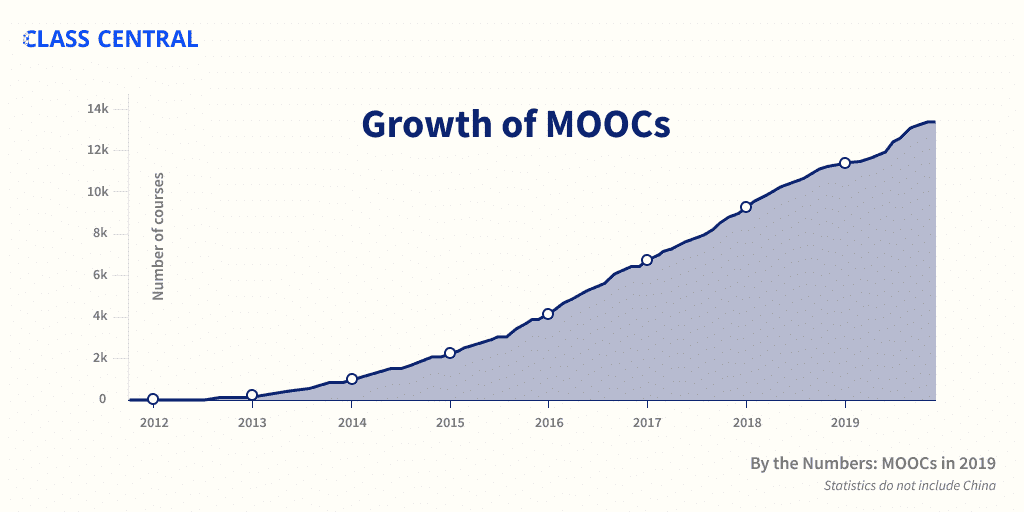
What is Online Learning?
Online learning is a form of distance learning, where all tuition is done via the internet. In general, all courses will feature a central hub where resources, discussions, and video conferencing either take place or are linked from. Beyond that, there’s quite a lot of different ways online learning can take place.
1. Pre-recorded lectures and tutorials.
One of the easiest ways for course leaders to share knowledge, pre-recorded lectures and tutorials are very common. Some may be more elaborate – perhaps a high-quality recording of the steps of an experiment in a lab – whilst others might be quite simple – just the tutor talking through a subject directly to a webcam.
For some topics, they may record their screen. For example, a course on digital marketing might include a session about social media platforms. Rather than showing their face, it may involve a video of them walking through various social media examples with just a voiceover.
2. Discussion boards.
Discussion boards are a great place for further conversations with classmates. Many distance learning students struggle with the lack of a social aspect, and discussion boards can go some way to counteract this. They also allow participants to think through and plan their comments, allowing for a much deeper level of engagement than off the cuff in-person conversation.
Many online courses will have discussion boards broken into sections so that off-topic conversation has its own place, rather than interrupting comments on that week’s homework, or analysis of a certain resource.
3. Video conferencing.
Closest to an in-person class, video conferencing can be used both for group seminars and one-on-one tutorials. This allows participants to converse in real-time, though it does require them to be in the same or similar time zones.

Video conferencing can often be best suited for arts and humanities or social-sciences courses. For instance, a seminar focused around discussing a particular piece of literature, rather than more technical courses like data science. That’s not to say they aren’t useful, but that you may see them less.
4. Self-guided study.
The self-guided study is a vital part of any learning, but it’s especially important for online courses. Resources are often provided, but your engagement with them must be done in your own time. Some courses, like computer science, will set projects to complete by certain deadlines, whilst others will have required reading before the next lecture or seminar.
In higher education courses, the contact hours aren’t the only hours you spend learning, and this applies to free online courses as much as paid for on-campus degrees.
5. Interactive tasks.
Many tutors make use of the unique nature of online learning by setting interactive tasks. This can include things like quizzes that they don’t need to mark as they get automatically marked by the software. These interactive tasks are particularly beneficial to your personal development, as they allow you to get a feel of how well you’re doing at the course and how well you’re grasping the material.
These are the main methods used in online learning, so if you plan on taking an online course to focus on personal development, you need to be prepared to engage in these ways.
Pros of Free Online Learning Courses
Online learning has many benefits – it’s a fantastic way to work on your personal development and can often offer things traditional learning courses might not.
1. Range of subjects.
There is a wide range of free online learning courses available, and it’s easy to find something in an area that you’re interested in. Physical classes require a certain amount of sign-ups to justify running, but many distance learning courses can be run for any number of students.
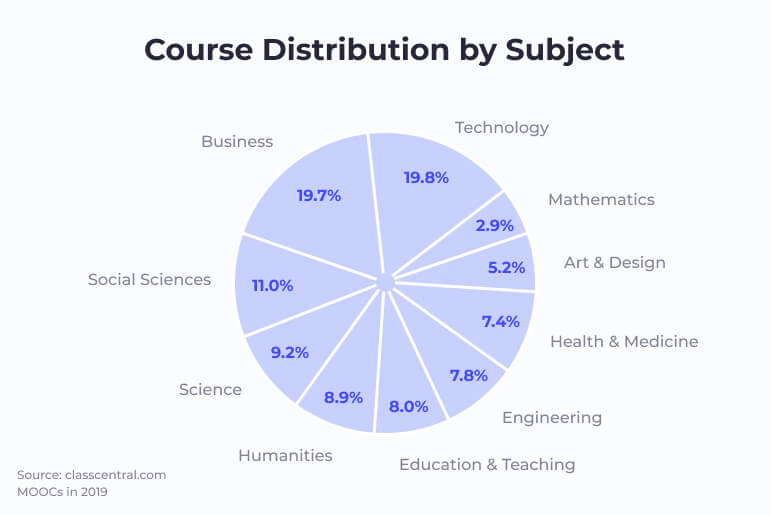
This means that non-traditional subjects have their space, too. With a quick google search you can find courses on designing skirts just as easily as you can find ones on data science. In particular, a lot of courses focus on professional and personal development. Whether that’s learning about project management, finance essentials, or how to become an entrepreneur, there’s a course out there for you.
2. Open to anyone.
Unlike conventional classes, online learning is open to anyone. This is especially true of free MOOCs, as you simply have to click ‘register’ on most sites. There are no checks on your past qualifications, no restrictions based on age or location, and no maximum class numbers.
This particularly benefits young people who struggled with conventional education, as well as older professionals who may not have an academic background. It also means that your classmates can be from a huge variety of backgrounds, which is great for adding diversity of thought to your seminars.
3. No cost barrier.
It’s in the description – free courses are free to enroll. Whilst some free courses have paid-for options (many MOOCs are free to study, but charge for a certificate of completion), they’re great for people with low budgets.
There’s another advantage to free online learning – it’s not just free to take the course, but there are no additional costs to consider (providing you already have the technology). You don’t have to factor in travel costs, textbook prices, or time away from your job in order to participate – making them much more accessible.
4. Flexible scheduling.
One huge advantage to online learning is the flexibility. While some courses may have certain set timed lectures or seminars, many rely on pre-recorded videos which means you can watch them anytime, anywhere.
For people who have a busy schedule, work odd hours, or simply prefer to be able to schedule their own day in a way that suits them best, online learning is ideal.
5. Can be done around other commitments.
Undertaking a full-time degree on campus would involve moving away, giving up a job, and potentially having less time for other important commitments like children or other family members. This can disadvantage young people who are carers, parents, those already progressing in their career, and people who are settled somewhere.
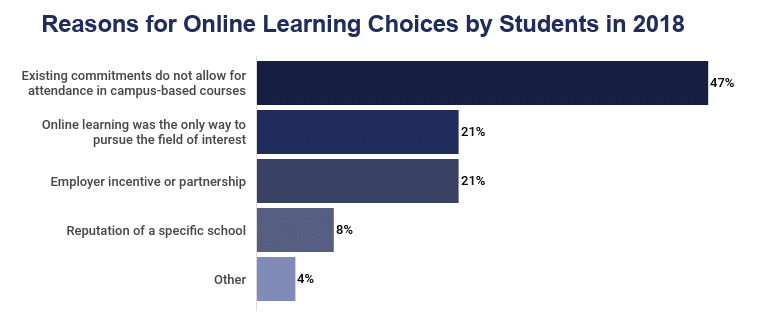
Being able to study online, with short courses on relevant subjects is a great way to work on your personal development without having to make radical changes to other aspects of your life.
Cons of Free Online Learning Courses
Of course, there are downsides to online learning courses too. With so many free courses available, they won’t all be suited for everyone – and some people may just find distance learning doesn’t work for them.
1. Need to be motivated.
The main challenge many people face when they start studying online is the amount of motivation and discipline it requires. Many people register for a course and never complete it. The fact it’s free can actually increase the chances of this, as you won’t feel like you’re wasting money by not completing it. While in-person higher education requires discipline, you have external pressures to encourage you – other students, tutors, and so on. These aspects are far more distanced with online courses, and you may struggle without them.
2. Not always recognised as ‘official’ qualifications.
Not every online course will be recognised by every business. This can make it tricky to work out which to choose – if you google ‘data science’, how can you tell which courses will be recognised, and which won’t?
It is possible to find this out by reading reviews, choosing courses organised by high-quality institutions, and talking to people already established in the field. However, there are no guarantee people will recognise free online courses as a valid study – especially since free courses usually don’t come with accreditation.
3. No guarantee of quality.
This goes hand in hand with the above point. Generally speaking, accredited courses display a certain level of quality. If you study project management at a well-regarded business school, you can be confident it’ll be a well-taught course.
With the amount of free online learning courses available, it’s much harder to tell. This may be a particular challenge for young people, who won’t have the experience to recognise what should be covered in a syllabus. People further along in their careers will know what to look out for. Again, this downside can be mitigated by choosing high-quality institutions and doing your research, but it makes it more challenging to find a course.
4. Fewer social aspects.
Online courses are less social than ones on campus – you don’t benefit from shared locations, and there isn’t always a shared context to talk about. Classes that offer virtual team building activities, networking, or even just discussion boards are useful for encouraging these social bonds.
Luckily, social media makes it much easier to connect with people globally, but for some students, this lack of an in-person social connection may make them feel disconnected from the course in general. This, and other mental health problems, are worth thinking seriously about.
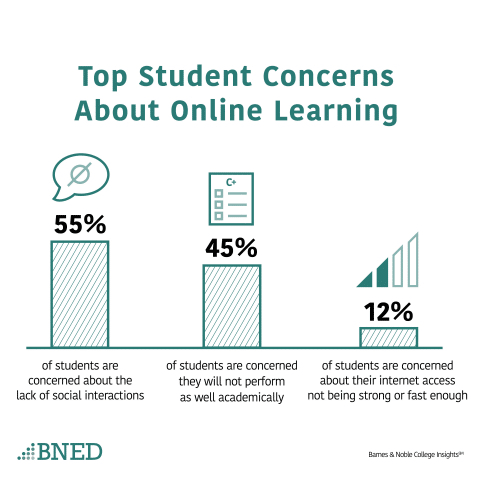
5. Reliant on technology.
This is another huge issue for free courses – they require a monetary investment in technology. If you already have a computer or smartphone, this may be negligible, but it does mean people without adequate hardware cannot access the course.
This reliance on technology has another problem, too, as it means things can go wrong! Video call connections can drop, files can be lost, and internet connections can go down. Be prepared to manage tech issues if you want to benefit from online learning. You don’t need to be an expert on machine learning, but you may have to troubleshoot a misbehaving router!
Who Can Benefit From Online Learning?
The short answer? Everyone! Anyone who has a desire to learn can benefit from online learning, especially with so many free courses available. However, there are a few groups that might benefit the most.
1. People looking to advance their careers.
Online study can have real, tangible benefits for career progression. Whether you’re changing fields from copywriting to computer science, looking for a new promotion, or simply wanting to grow more confident in an existing role, you can find courses to suit.
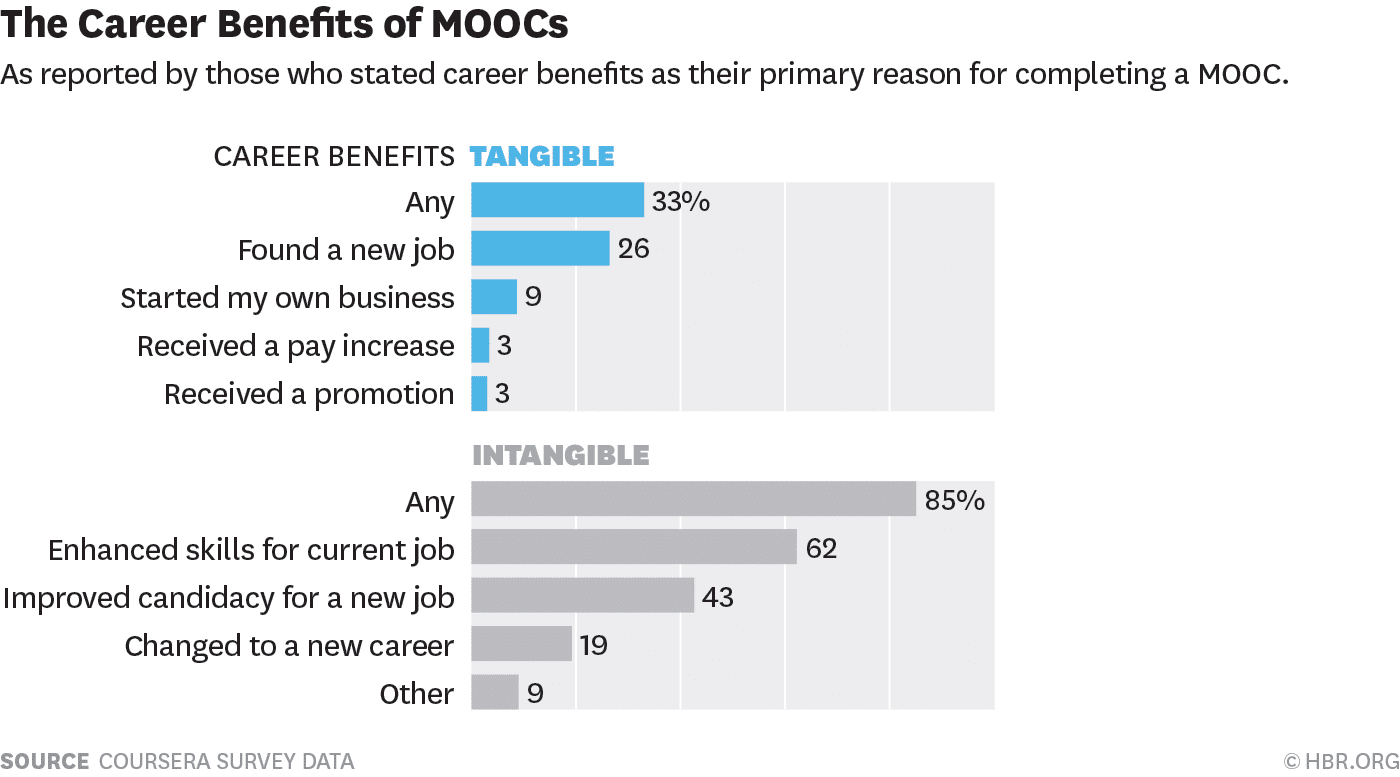
If this is your primary motivation, it can be worth discussing it with your employer as they may be able to guide you to the best courses for you. For some subject areas, too, they may offer you additional support to pursue the course.
2. People looking to improve their life skills.
Personal development isn’t only about career development. Many people may find themselves lacking important life skills. Young people who haven’t been taught financial planning, older people who want to learn new IT skills, and people looking to improve their decision making can find appropriate free courses online.
3. People pursuing a passion.
Not every type of study has to have an ‘end goal’ beyond gaining new knowledge. People who have a particular passion for something like history, linguistics, or fashion are often well suited to studying online as this passion can translate into discipline. Google can only guide you to so many answers, and having the opportunity to study with experts in their field and the resources they provide is a great opportunity.
Tips For Online Learning
If you want to excel at online learning, it’s worth making sure you do it properly. Here are a few key tips to get you started.
1. Invest in a decent set-up.
Whilst the course itself may be free, it’s still worth spending some money on. Invest in a space where you can learn – set up a home office, or simply decorate a corner of an existing room. Having a study area is a great way to encourage yourself to commit the time and energy the course needs. This is even more important if you’re looking for professional development. The process of studying in itself, after all, is something that can impress future recruiters or human-resources departments.

2. Stick to a routine.
As well as creating a set space, figure out a routine. It doesn’t have to be a traditional 9-5 day, but you should have an idea of what times you’ll be working on the course and how frequently. This is particularly important if the course involves homework. Being subject to a routine, too, is often better for your general mental health.
3. Treat it as you would in-person learning.
Similar to adapting to remote working, online learning in the digital world needs to be treated the same as the in-person equivalent. It can be tempting to act as though it’s less of a commitment than an in-person class, especially if you’re doing free online learning. The lack of monetary investment and physical location can make it seem less serious. Try to treat it the same as you would if you’d spent money and physically gone to class, and you’ll get the most out of it.
4. Reach out to your peers and teachers.
You might not share a physical location, but you do share a virtual classroom. Make the effort to connect with other students and your teachers. Other students might have useful study tips and interesting ideas, and will also understand the problems you might encounter. Teachers may have virtual office hours, and it’s worth picking their brains while you can!
5. Understand what you’re looking for in a course.
With so many free online courses available, you’ll need to know how to narrow it down. Rather than going to google and typing in ‘free data science course’ or something similar, set strict criteria in advance. That way, you can choose courses that suit what you need, rather than picking the first ones you come across.
What to Look For in an Online Learning Course
With so many online courses available, you need to know what to look for. Here are five questions to ask yourself when you look for one.
1. Do you need it to be accredited/have proof of completion?
This is a huge part of choosing whether to take a paid or free learning course. Some courses, which are free unless you want a certificate, allow you to put this decision off until the end. Most, though, will require you to decide upfront. If it’s for personal development, you’re probably okay not having a certificate, but career or academic development might be a different case. Learning something like bookkeeping almost certainly will.
2. Does it have reviews?
If you can find reviews, whether on the site, on social media, or somewhere else, then pay close attention! Even positively reviewed courses might not be what you need. Look at the teaching styles and topics mentioned and check they line up with what you want. Negative reviews should be weighed up, too. If they say it’s badly taught, you might want to avoid it. If they say the material was too challenging? Then it gives you the chance to assess if it’s the right skill level for you.

3. What’s the completion rate?
The amount of sign-ups is one thing to consider, but more important is how many people complete the course. If only 10% of people finish it, it might not be a well designed one, it may lack course materials, or perhaps it’s not been advertised correctly. Try to choose courses that have a good completion rate.
4. What can you find out about the teacher?
Google your potential teachers, and see what you find. Do they have lots of academic citations in the field they’re in? Then they probably know what they’re talking about. Is the only result of their blog, filled with spelling errors? Then you should probably steer clear. Check out their social media, too, and especially LinkedIn. You’d be surprised what you can glean about how they might treat their students.
5. Does it have a clear syllabus that matches your needs?
Finally, make sure you know what the course involves. There should be set topics, with descriptions of what lessons include. Some syllabi will include expected outcomes, which is great for technical courses like computer science. Something that says ‘at the end of this lesson you will know how to define variables in python’ is probably better planned than one that just says ‘we’ll learn python’ or ‘you’ll develop new skills’.
Top Free Online Learning Courses
Wondering how to get started? Here are our top ten free online learning courses, drawn from some of the most popular distance learning sites in the world.
- CS50’s Introduction to Computer Science – Harvard University, on edX. It’s described as “An introduction to the intellectual enterprises of computer science and the art of programming.”
- The Data Scientist’s Toolbox – John Hopkins University, on Coursera. According to its description, it “gives an overview of the data, questions, and tools that data analysts and data scientists work with.”
- Introduction to Philosophy – University of Edinburgh, on Coursera. It looks at many key philosophical topics, including epistemology, political philosophy, ethics, the philosophy of science, and the philosophy of mind.
- Successful Negotiation: Essential Strategies and Skills – University of Michigan, on Coursera. Out of more than 1,000 ratings, the instructor for this course has a 4.8/5 star rating.
- Exploring English: Language and Culture – British Council, on FutureLearn. This course “examines English in use to help improve your English language skills.”
- Introduction to Public Speaking – University of Washington, on Coursera. This course has a 98% positive rating, based on over 13,000 ratings.
- Introduction to Project Management – The University of Adeline, on edX. The description states “Learn the principles of project management and apply them in your own work and life.”
- Buddhism and Modern Psychology – Princeton University, on Coursera. Reviews describe this course as having “engaging content and excellent pace” and being a “great learning experience from an awesome professor”.
- Start Writing Fiction – The Open University, on FutureLearn. This course is designed to help you “Get started with your own fiction writing, focusing on the central skill of creating characters.”
- The Science of Everyday Thinking – The University of Queensland, on edX. It’s tagline states it will help you “learn how to think better, argue better, and choose better.”
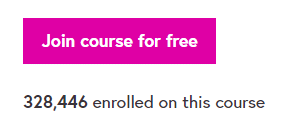
Conclusion
With the sheer amount of free online learning courses available, there’s something for everyone. Even if none of the above courses inspired you, take a look at the websites that host them, and see what catches your eye. The lack of cost, ease of access, and short time commitment mean it’s worth testing one out and seeing just what it can do for you.
Get details on the security and trust built into RingCentral products and services.Download the white paper
Originally published Sep 25, 2020, updated Jan 16, 2023



